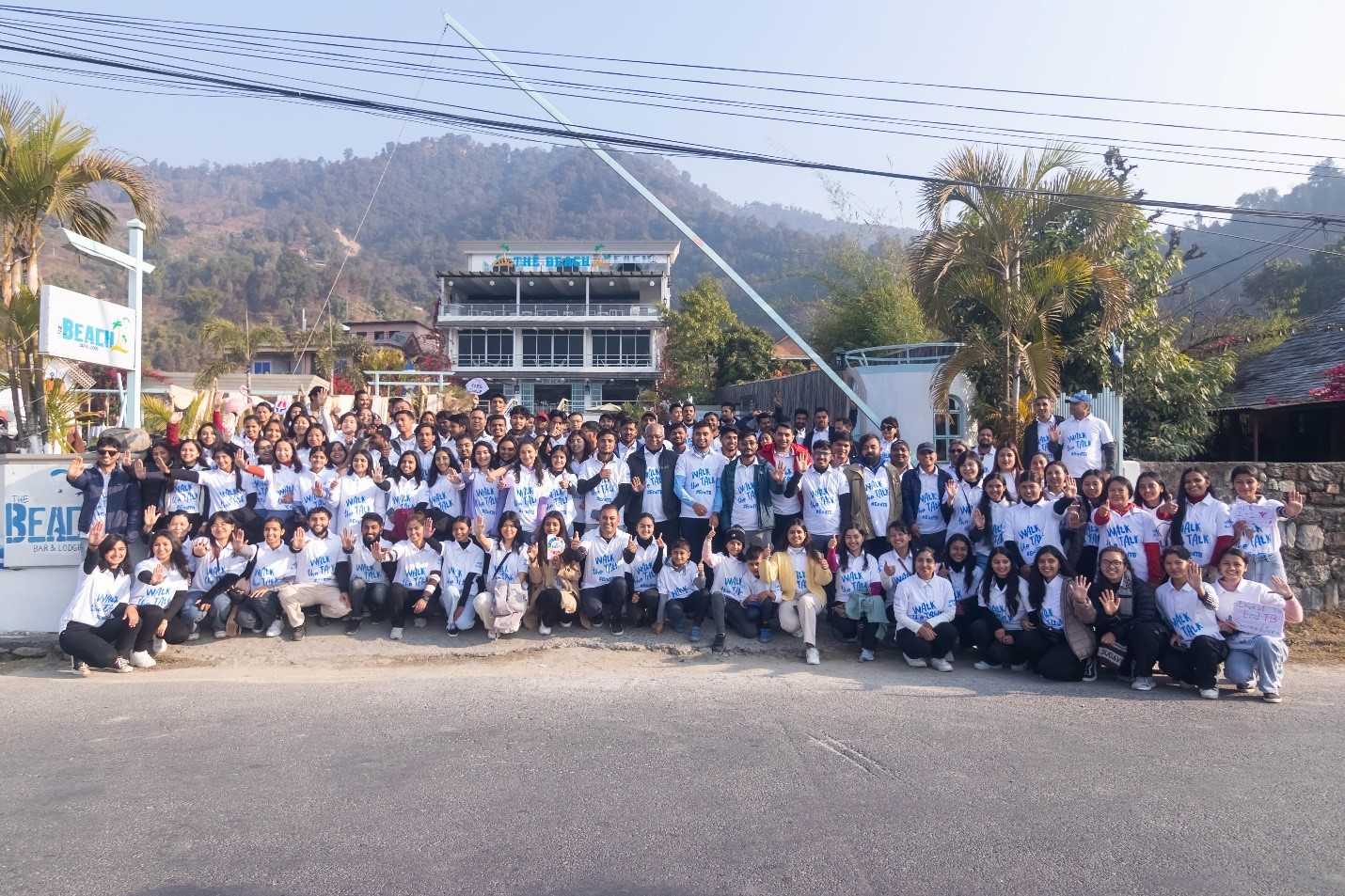
After a successful Walk the Talk event at Pokhara, a dedicated group gathers, fueled by a shared commitment to #EndTB.
Tuberculosis or TB disproportionately affects young people between the ages of 15-34 who carry among the heaviest burdens of the disease. Enabling their access to care and ensuring their meaningful participation in efforts to end TB at all levels will pave the way to a better, safer, and healthier world free of TB.
In 2019, WHO launched a special youth initiative titled 1+1 to call for youth mobilization to boost the fight to end TB. The initiative aims to advance engagement with young people and amplify their voices to end TB.
Aligned with the initiative, WHO Country Office for Nepal, recently collaborated with NYMAT Nepal (National Youth Movement Against TB), a youth organization dedicated to combating TB by launching the 24-24 Youth Campaign for TB-related capacity-building, awareness, and advocacy activities.
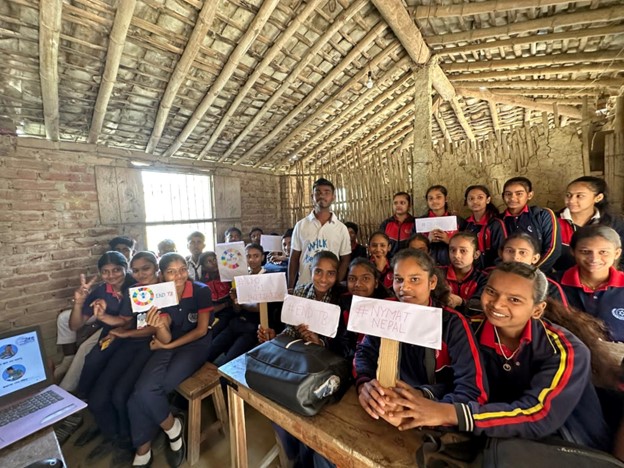
A group photo captured after an engaging TB education session held at a school in Mahottari district. The session was conducted by Bimlesh Khatwe, a NYMAT volunteer.
Since its launch in January, the campaign has successfully mobilized over 1 000 youth volunteers, conducted TB outreach programmes for over 55 000 school students across Nepal, and engaged with over a thousand stakeholders to advocate for prioritizing TB in policies and programmes. Majority of the nearly 2 000 volunteers who are involved in the campaign are between 15-24 years of age.
“I take immense pride that we are engaging over 1000 passionate youths with the support of WHO. This momentum brings me great joy, as I believe in the potential of empowered youths to play a pivotal role in controlling TB in Nepal. Building on our goal of empowering youths, our campaign focused on three strategic areas: enrollment of youths in the movement against TB, capacity building of youths on TB and related advocacy, and engagement of youths for a TB-Free Nepal. The concept for this campaign was conceived over a period of three months and written in just an hour. It took a few weeks to prepare and 3 months of tireless effort to make it a success, but its impact will be felt for the next 10-15 years. Gratitude to all my teammates, participants, and well-wishers,” said Madhusudan Kaphle, Founder of Nymat Nepal, which began as a youth initiative in 2018 and is now a registered non-governmental organization with a presence in all seven provinces of Nepal.
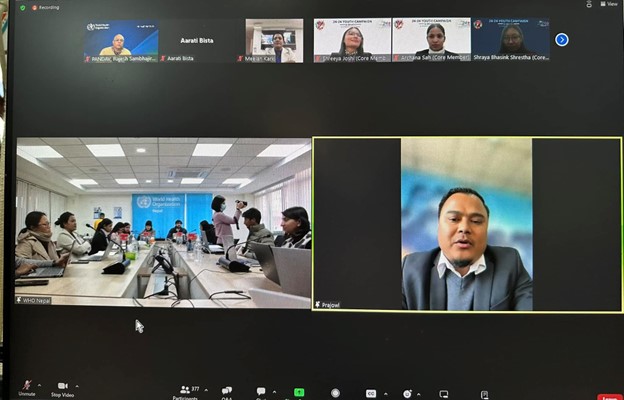
A 2-day virtual orientation program was held to brief volunteers on topics such as the end TB strategy, WHO’s 1+1 initiative, and TB fundamentals. The orientation jointly facilitated by WHO, the National Tuberculosis Control Center, and NYMAT saw the participation of over 1 200 youth volunteers.
In the first phase, selected volunteers partook in a comprehensive capacity-building program, which included their enrollment in TB-related courses on OpenWHO. More than 1 200 volunteers completed at least three courses, on topics such as National Strategic Planning for TB, Systematic Screening for TB, and the intersection of TB and mental health. Next, they participated in a 2-day virtual orientation facilitated by WHO, Country Office for Nepal, the National Tuberculosis Control Center (NTCC), and NYMAT. The orientation had technical sessions on the National TB Programme, the End TB strategy, TB Advocacy, fundamentals of TB, and the 1+1 initiative.
The young TB advocates also led awareness-raising and community outreach efforts, which included visiting schools in their communities and interacting with community groups and local influencers. The volunteers’ ability to communicate in the local language, and their understanding of local culture, proved particularly effective for the campaign’s success.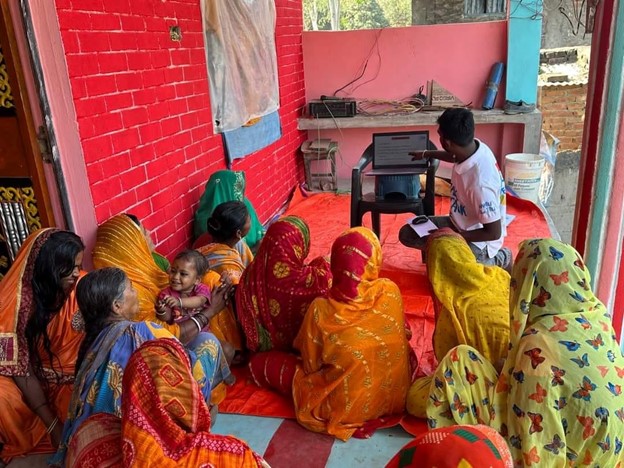
Bhilmesh Khatwe, a youth volunteer, conducts an orientation on TB for members of a mother’s group in Jaleshwor Municipality, Mahottari, Madhesh Province.
Bhilmesh Khatwe, born and raised in Jaleshwor Municipality in the Mahottari district of Nepal, shared his experience: “I recognized the urgent need for health education within our community while attending the virtual technical session during the campaign. Thus, I enthusiastically joined the 24-24 campaign. As a part of this endeavor, I took the lead in educating rural mothers about TB using our native language, Maithili. Through clear and accessible language, I facilitated discussions to raise awareness about TB, its symptoms, and preventive measures. It fills me with pride to contribute to such a positive campaign.”
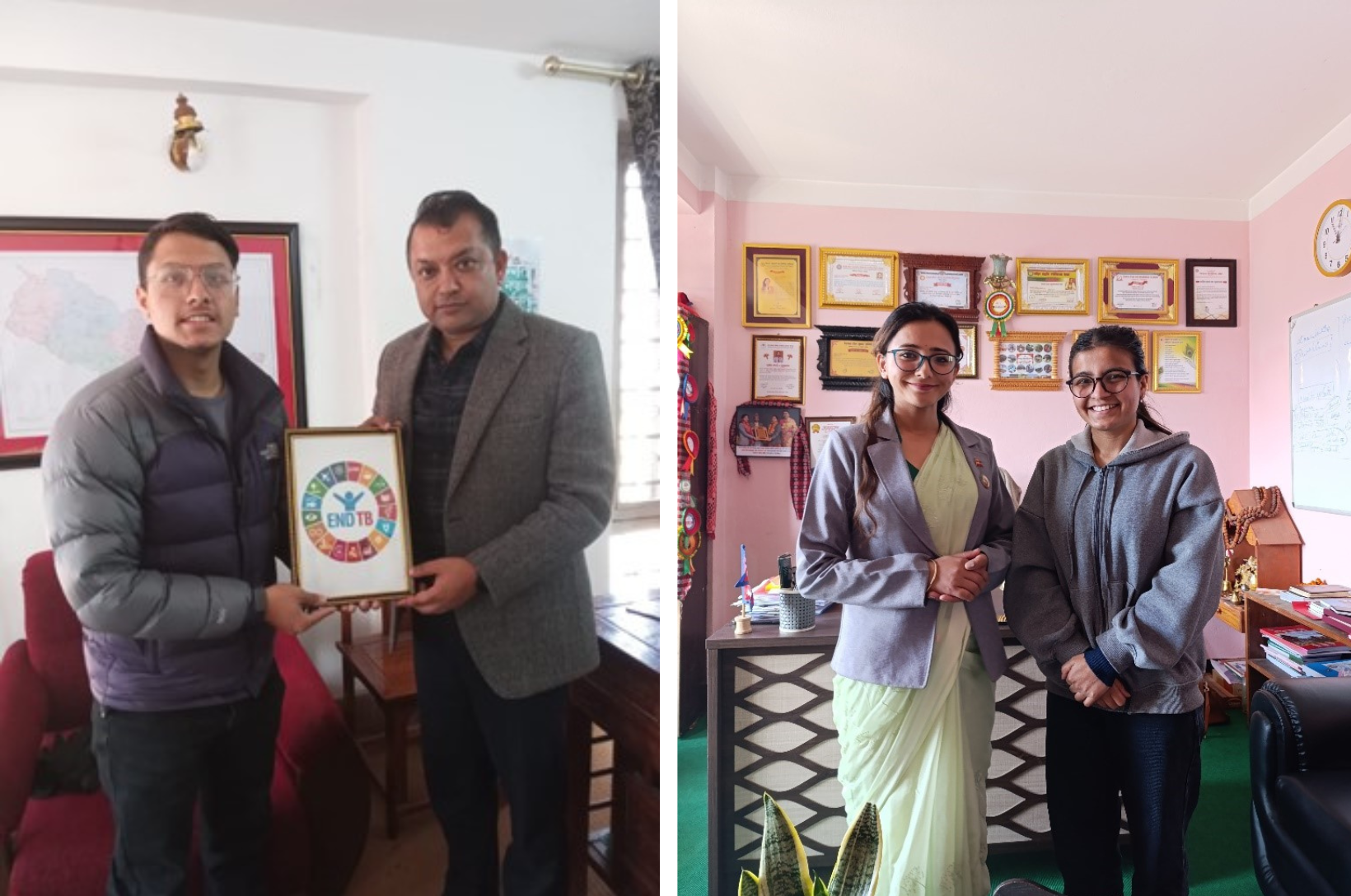
Members of NYMAT Nepal have engaged with several political leaders as part of their TB advocacy efforts. Pictured above are volunteers of NYMAT Nepal with members of parliament: Gagan Thapa (right in the left picture) and Toshima Karki (left in the right picture).
Similarly, the volunteers also engaged with stakeholders including ministers, mayors, ward members, female community health volunteers, social workers, and health professionals, to advocate for the prioritization of TB in their policies and programmes.
Another highlight of the campaign is the “Walk the Talk to End TB” initiative, jointly organized by WHO and NYMAT Nepal. This captivating event assembled young TB advocates, community leaders, and WHO personnel for a walk, and provided a common platform for TB-related discussions. The initiative has proven to be an exciting way to promote the campaign and foster open conversations about TB within communities while also promoting the importance of physical activity for good health. So far, three sessions have been held in three provinces.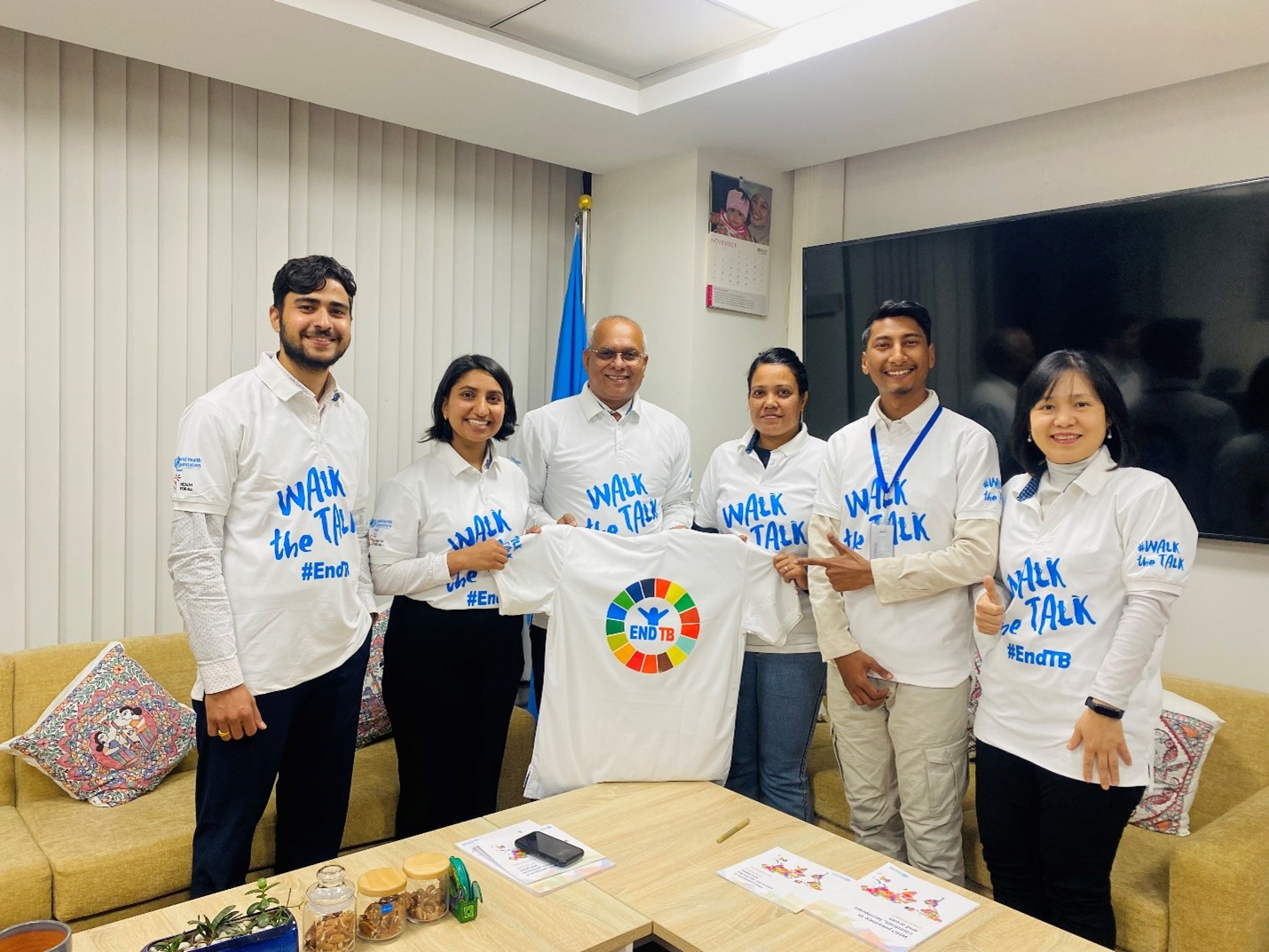
Dr Rajesh Sambhajirao Pandav, WHO Representative to Nepal, hands over campaign t-shirts to members of Nymat Nepal, signifying a collective commitment to fight TB.
“It has been inspiring to watch these young TB volunteers in action and to see the impact they are driving at the grassroots level to enhance TB education and advocacy. I feel extremely proud that we were able to collaborate on this campaign and look forward to strengthening our engagement with the young people of Nepal in the coming days, particularly on issues of health promotion and advocacy,” said Dr Rajesh Sambhajirao Pandav, WHO Representative to Nepal.
Key achievements of the campaign
- Over 55 000 students received education on TB
- More than 1200 youths actively enrolled in a minimum of three TB courses on OpenWHO
- A robust participation of over 1 100 youths in virtual training sessions, co-facilitated by Nymat Nepal, the National TB Control Center, and WHO, Country Office for Nepal
- The campaign successfully reached 936 schools, expanding its impact across educational institutions
- Engaged with 1 058 key stakeholders through targeted TB advocacy initiatives
- Garnered an estimated digital reach of over 250 000, leveraging technology for widespread awareness.
